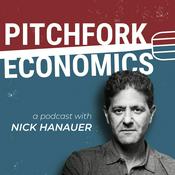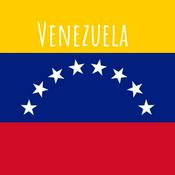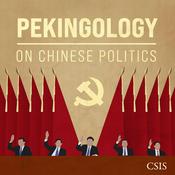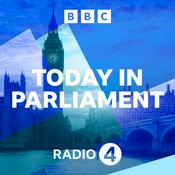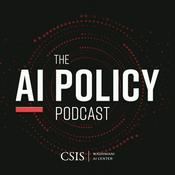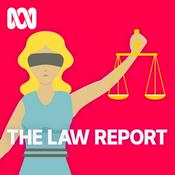24 episodi

OPEN Echoes - EP024 - Dr. Olivier Schmitt
04/04/2025 | 34 min
OPEN ECHOES Episode #24An interview with Dr. Olivier Schmitt__Dr. Olivier Schmitt is a professor of political science at the Center for War Studies, University of Southern Denmark (SDU), where he focuses on security policy, military cooperation, arms control, and the evolving nature of warfare. He previously served as director of research and studies at the French Institute of Higher National Defence Studies (IHEDN) and holds a Ph.D. from the Department of War Studies at Kings College London.__This interview explores the author's insights on alliance dynamics, focusing on:- A broader definition of alliances, including both formal treaties and informal alignments, to better reflect today’s complex security partnerships.- Three key motivations behind alliance behavior: balancing (uniting against a threat), bandwagoning (aligning with a dominant power), and tethering (maintaining adversarial relationships within an alliance to prevent open conflict).- The role of institutional adaptability in ensuring the credibility of alliances.- The challenges posed by economic ties with adversarial powers, which complicate alliance politics.- The conclusion that NATO is not merely a military alliance but also a community of democratic values—essential for its long-term stability, cohesion, and legitimacy in the 21st century.Welcome to OPEN Echoes. OPEN stands for “Other Perspectives Exchange Network.” Our mission is to explore diverse, insightful, and sometimes disruptive viewpoints on matters crucial to NATO.OPEN Echoes reflects the original thoughts, analyses, and viewpoints shared by academics, thought leaders and non-military experts — spreading ideas, perspectives, and insights across the globe.- It’s our hope that the insights shared in these episodes will help to impact and influence thinking and conversations long after you take off your headphones.OPEN Echoes alternates episodes between compelling interviews with non-NATO subject matter experts, and readings from OPEN's wide range of publications. In this episode, we interview Dr. Olivier Schmitt.Dr. Schmitt’s article, “The Emergence of Military Alliances in the 21 st Century"; is available on the OPEN Publications website here.

OPEN Echoes - EP023 - Interoperability and Standardization in the Exponential Age - Dr Michael Gerz
24/02/2025 | 49 min
OPEN ECHOES Episode #23OPEN Echoes reflects the original thoughts, analyses, and viewpoints shared by academics, thought leaders and non-military experts — spreading ideas, perspectives, and insights across the globe. It’s our hope that the insights shared in these episodes will help to impact and influence thinking and conversations long after you take off your headphones. OPEN Echoes alternates episodes between compelling interviews with non-NATO subject matter experts, and readings from OPEN's wide range of publications. In this episode, we present an audio recording of the OPEN Publication, "Interoperability and Standardization in the Exponential Age” by Dr Michael Gerz.The reading length is approximately 49 minutes. Listeners should note that this audio reading does not include the references, images or diagrams included in the original publication. References, images and diagrams can be found in the original publication, which can be accessed and downloaded at https://issuu.com/spp_plp/docs/openpu_2?fr=xKAE9_zU1NQ

OPEN Echoes - EP022 - Warfare Development for Operational Effectiveness in a Changing Climate - Ms Louise Selisny
30/01/2025 | 56 min
OPEN ECHOES Episode #22 OPEN Echoes reflects the original thoughts, analyses, and viewpoints shared by academics, thought leaders and non-military experts — spreading ideas, perspectives, and insights across the globe. It’s our hope that the insights shared in these episodes will help to impact and influence thinking and conversations long after you take off your headphones. OPEN Echoes alternates episodes between compelling interviews with non-NATO subject matter experts, and readings from OPEN's wide range of publications. In this episode, we present an audio recording of the OPEN Publication, "Warfare Development for Operational Effectiveness in a Changing Climate” by Ms Louise Selisny. The reading length is approximately 56 minutes. Listeners should note that this audio reading does not include the references, images or diagrams included in the original publication. References, images and diagrams can be found in the original publication, which can be accessed and downloaded here.

OPEN Echoes - EP021 - Dr. Markos Trichas
08/01/2025 | 24 min
OPEN ECHOES Episode #21 An interview with Dr. Markos Trichas __ Dr. Markos Trichas is a Visiting Professor at the Centre for Seapower and Strategy focusing on threats to critical spaceborne infrastructure and their impacts to naval and maritime operations. Dr. Trichas is the Head of National Security and Defense Space activities at BAE Systems. Previously he spent more than 10 years at Airbus Defense and Space as the Head of UK Future Military Space programs, three years at the High Energy Astrophysics Group at the Harvard - Smithsonian Centre for Astrophysics and three years at the STFC's Rutherford Appleton Laboratory. He holds a PhD in Astrophysics from Imperial College London and a Masters in Astrophysics from the University of London. He has authored and co-authored more than 100 peer reviewed publications and has more than 11,300 citations to his work. __ This OPEN Echoes interview: - Clarifies what Mega Constellations are. - Highlights Strategic Implications for Global Security and geopolitical competition. - Explores Military and Commercial Advantages of Satellite Mega Constellations. - Presents Technological Innovations. - Suggests Recommendations for NATO. — Dr. Trichas article, “Opportunities and Threats from Commercial Satellite Mega-constellations" is available on the OPEN Publications website here.

OPEN Echoes - EP020 - Examining the Maritime Security Potential of the African Standby Force and Other Multifunctional Approaches to Securing African Waters - Dr. Ian Ralby
27/11/2024 | 53 min
OPEN ECHOES Episode #20 An audio reading of “Examining the Maritime Security Potential of the African Standby Force and Other Multinational Approaches to Securing African Waters” by Dr. Ian Ralby. OPEN Echoes reflects the original thoughts, analyses, and viewpoints shared by academics, thought leaders and non-military experts — spreading ideas, perspectives, and insights across the globe. It’s our hope that the insights shared in these episodes will help to impact and influence thinking and conversations long after you take off your headphones. OPEN Echoes alternates episodes between compelling interviews with non-NATO subject matter experts, and readings from OPEN's wide range of publications. In this episode, we present an audio recording of the OPEN Publication, “Examining the Maritime Security Potential of the African Standby Force and Other Multinational Approaches to Securing African Waters” by Dr. Ian Ralby. The reading length is approximately 53 minutes. Listeners should note that this audio reading does not include the references, images or diagrams included in the original publication. References, images and diagrams can be found in the original publication, which can be accessed and downloaded here.
Altri podcast di Governo
Podcast di tendenza in Governo
Su OPEN Echoes
Ascolta OPEN Echoes, Pitchfork Economics with Nick Hanauer e molti altri podcast da tutto il mondo con l’applicazione di radio.it
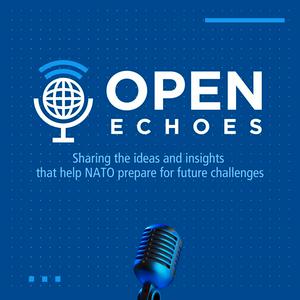
Scarica l'app gratuita radio.it
- Salva le radio e i podcast favoriti
- Streaming via Wi-Fi o Bluetooth
- Supporta Carplay & Android Auto
- Molte altre funzioni dell'app
Scarica l'app gratuita radio.it
- Salva le radio e i podcast favoriti
- Streaming via Wi-Fi o Bluetooth
- Supporta Carplay & Android Auto
- Molte altre funzioni dell'app


OPEN Echoes
scarica l'app,
ascolta.
